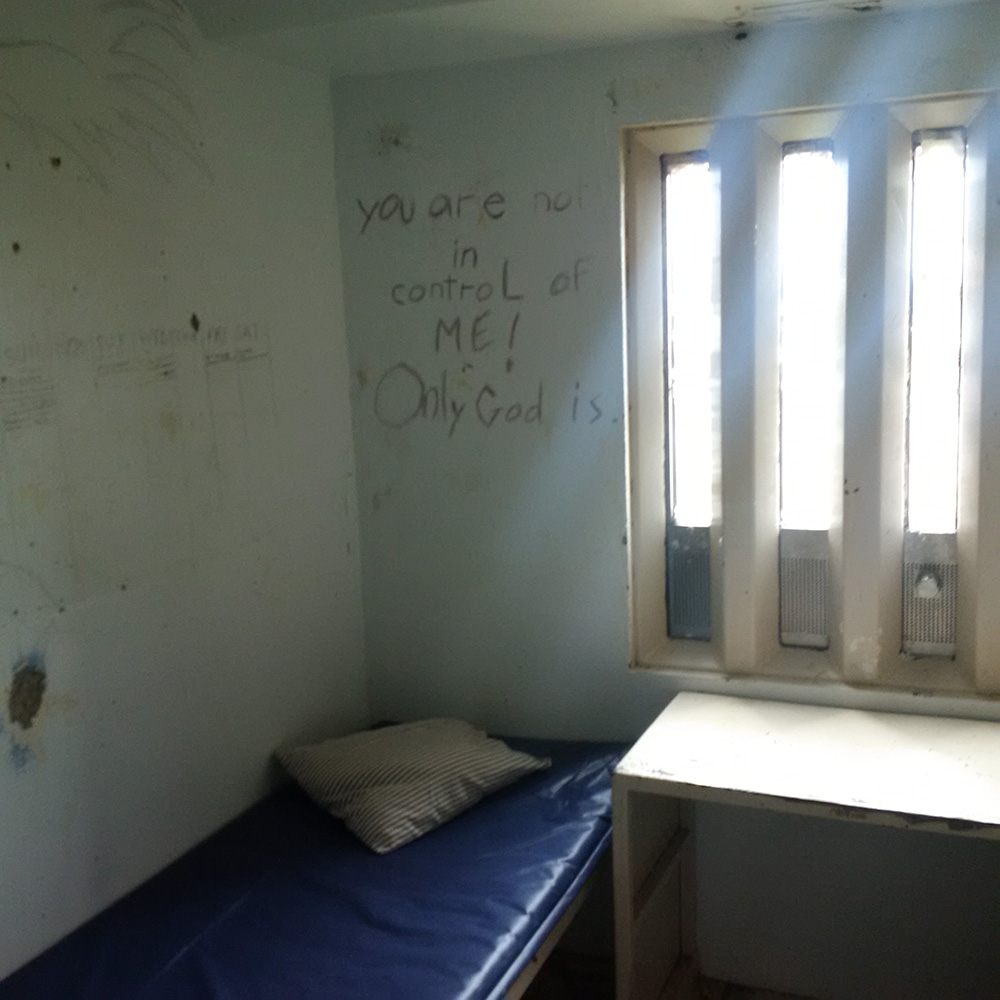Global uprisings in response to anti-Black police brutality have prompted demands to defund policing and reinvest in communities. But it is not just policing agencies that have a systemic racism problem. Canadian prisons do too.
Prisons are densely packed. Social distancing and adequate hygiene are impossible. Advocates suggest that depopulating them during the pandemic would reduce harm and save lives.
Yet the Ontario government recently announced it would funnel an additional $500 million over five years into maintaining and staffing prisons — despite anticipating a $20.5-billion deficit due to the COVID-19 pandemic.
The Saskatchewan government also recently announced it would spend $120 million to expand the Saskatoon Correctional Centre, while predicting a $2.4-billion deficit.
These developments are regressive. It is time to look at alternatives to imprisonment and set our sights towards abolishing prisons.
As soon as COVID-19 spread to North America, health professionals, scholars and activists expected widespread outbreaks in prisons. Advocates pleaded with governments to release prisoners.
One province, Nova Scotia, heeded this call.
Nova Scotia’s approach
In Nova Scotia the judiciary, corrections officials and Crown and defence lawyers, along with community organizations, collaborated to cut the provincial prison population in half. As of June 16, Nova Scotia’s jail for women had only eight prisoners.
The quick action resulted in only one case of COVID-19 in Nova Scotia’s prison system.
Prison systems that did not heed the warnings of experts — like those in Ontario, B.C. and Quebec — saw widespread outbreaks.
We spoke with Ashley Avery, executive director of Coverdale Courtwork Society, a non-profit organization that supports women, girls, trans, non-binary and two-spirit persons affected by the criminal justice system.
She reports the people they support are mostly arrested for public intoxication, homelessness and mental health crisis. Imprisonment should not be the answer for these people.
The movement to abolish prisons is a creative project that replaces punishment, widely considered ineffective in reducing violence.
Instead, transformative approaches prioritize health and well-being.
Decarceration is the effort to limit the number of people who are detained behind bars, either by limiting who is sent to prison in the first place or by creating avenues to release people already in custody.
Every person who isn’t sent imprisoned requires housing, adequate income and health services.
In Nova Scotia, community groups (Coverdale Courtwork Society, Elizabeth Fry Society and John Howard Society) report it costs them $150 per person per day to keep someone housed in a hotel with legal, health and other services. Compare this with the $255 per day cost of keeping someone in a provincial jail.
Prison expansion is a step backward
The mass incarceration of racialized communities in Canada’s prisons reflects the country’s racial profiling and over-policing of Black and Indigenous people.
Decarceration offers a direct way to address the systemic oppression Canada has imposed on those communities.
More than 30 per cent of Canadian prisoners are Indigenous (they are five per cent of the Canadian population), and 9.6 per cent are Black (they are 3.5 per cent of the population). Indigenous women account for 42 per cent of women in federal custody.
Black people are six times more likely to be street checked in Halifax, and more likely to be charged than white people for the same behaviour.
Indigenous confinement has been described as “a national travesty” by the Correctional Investigator of Canada and prisons as “the new residential schools” by criminologists. African American literary and cultural historian Saidiya Hartman calls the high rate of imprisonment the “afterlife of slavery.”
As COVID-19 loomed, few prisoners were released
About 800 people in the federal prison system have tested positive for COVID-19. Several prisons had massive outbreaks, and two people have died.
While the federal government claimed it had released hundreds of people during the pandemic, in reality there is only evidence that it released one person.
The government had options. Minimum security prisoners could have been released. Those close to parole could have had board appearances expedited. The elderly and unwell could have been released on compassionate grounds. Prisoners in mother-child programs, where young children live with their imprisoned mothers, could have been relocated to their communities. None of this happened.
The recent announcements about Ontario and Saskatchewan investing more dollars into prisons come amid pressing need for investments in health. Despite its promise, Nova Scotia’s decarceration initiative is at risk of imminent defunding.
Time for change
The Parliamentary Black Caucus, including MPs and senators from various parties, called for public investment community justice strategies as an alternative to prisons.
Indigenous leaders in British Columbia called for the release of as many people as possible, with support plans for housing, financial aid and community safety.
Sc’ianew First Nation (Beecher Bay) Chief Coun. Russ Chipps wants William Head prison, a federal penitentiary near Victoria, closed and the oceanfront land returned to First Nations.
Prison abolition may sound like a radical new idea, but people have been working toward it for decades. Black feminist theorists including Angela Davis, Ruth Wilson Gilmore and Mariame Kaba helped put this vision into practice by providing language, organizations, initiatives and resources.
We can defund police and prisons instead of ticketing people for being outside in this pandemic, snitching on our neighbours, tearing down tents, criminalizing people in mental health and addictions crisis and profiling Black and Indigenous peoples.
Prisons are too broken to reform. If Canada is serious about dealing with racism, then the abolition of both policing and prisons is the way forward.
![]()
![]()
Read more: Rights + Justice, Politics, Coronavirus















Tyee Commenting Guidelines
Comments that violate guidelines risk being deleted, and violations may result in a temporary or permanent user ban. Maintain the spirit of good conversation to stay in the discussion.
*Please note The Tyee is not a forum for spreading misinformation about COVID-19, denying its existence or minimizing its risk to public health.
Do:
Do not: